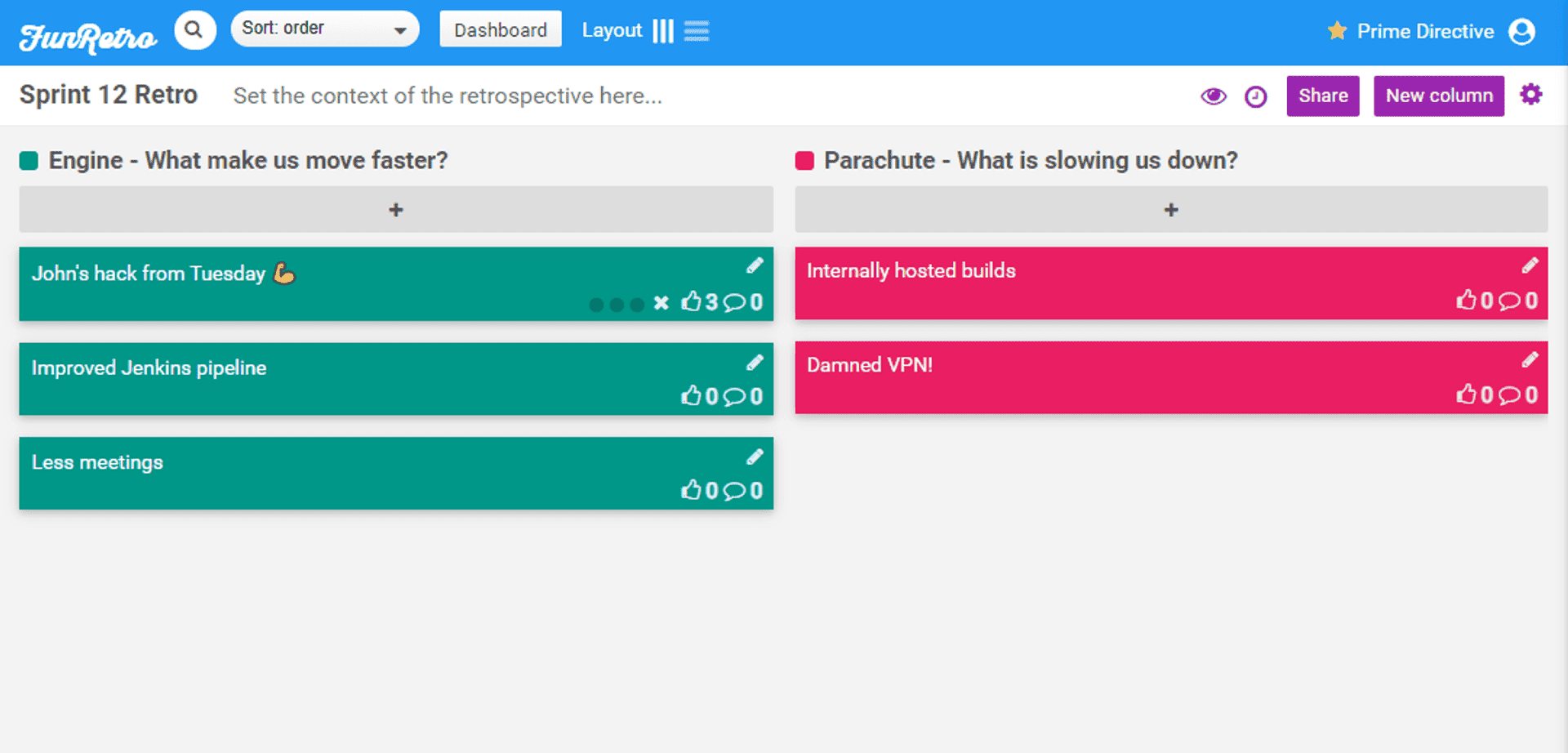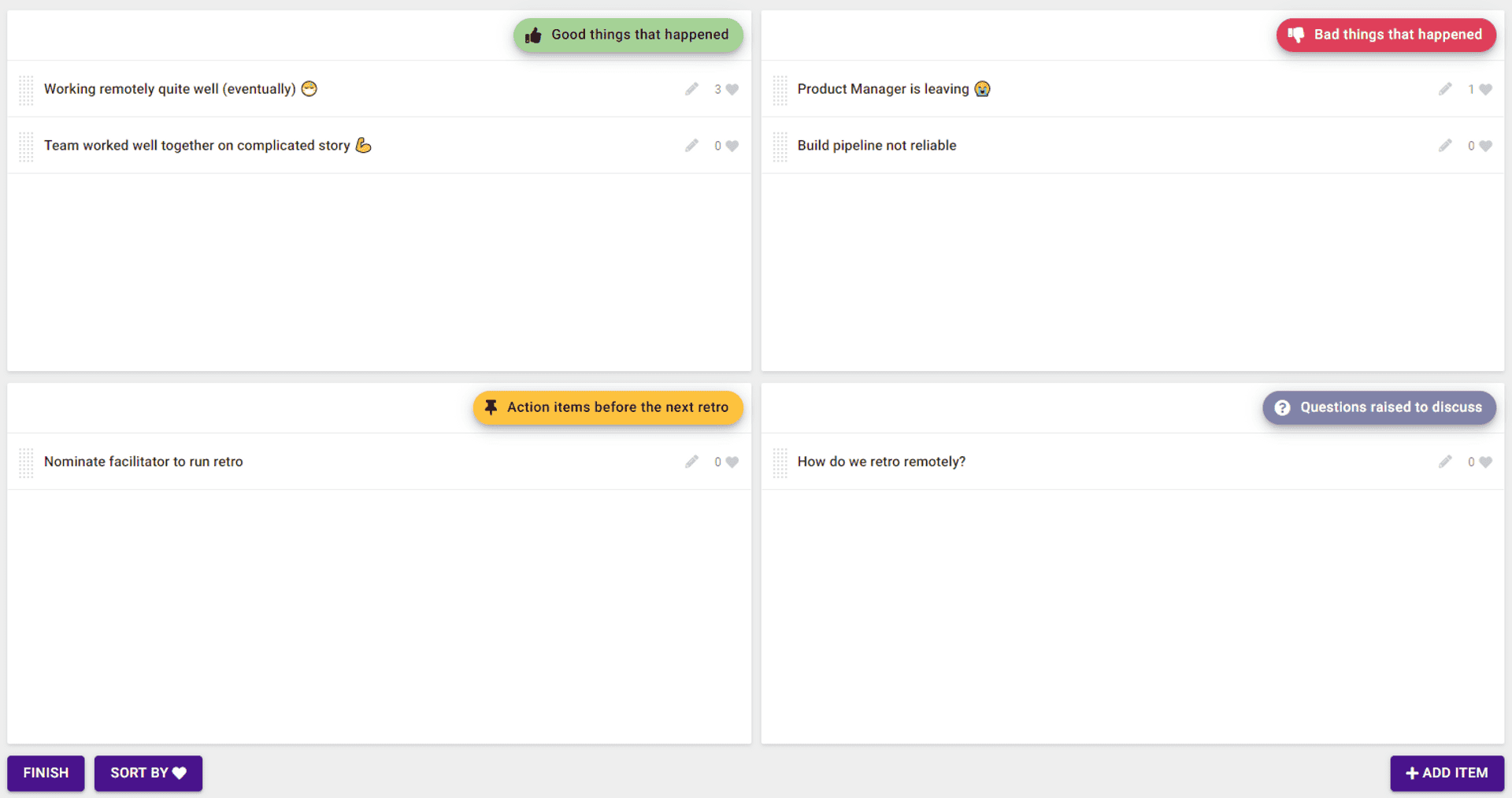With many people being encouraged to work from home through the coming months, I recently took to Twitter to ask for recommendations on running remote retrospectives.
For those unfamiliar with Agile software delivery, retrospectives are a regular opportunity for teams to inspect and adapt on a recent iteration, situation or delivery to come up with shared actions for improvement, be it quality, process or team behaviours (not exclusively).
We're surrounded with tech tools to improve our daily workflow but, ideally, retros are often an ideal opportunity to down tools, pick up a Sharpie and Post-It (other stationary are available) to discuss and scribble down pain-points with your team-mates free of any technical distractions.
Unfortunately, this isn't always possible, especially with more and more companies adopting remote working - a lot more prevalent in the tech industry.
With Coronavirus forcing many of us to find new ways of working, it was an ideal opportunity for me to find tools that could support us. Here are some suggestions I've looked at.

Simpler faster/slower retro board on FunRetro
Chris Compton suggested FunRetro - a neat little app free to use on a small number of boards, loads of retro formats to choose from and intuitively simple UI.

Sample retrospective board on Miro
Dan Blundell reminded me of Miro (formerly known as RealTimeBoard) which has some great templates for collaborative white-boarding including retrospective boards. It's available as iOS and Android apps which might improve the UX but will require pre-installation ahead of the session so factor that in.

RemoteRetro.io sample board
Westley Knight recently discovered Remote Retro - another web-based app that helps facilitate virtual retrospectives.

One team in the office tried using Mural which is another whiteboarding app. There's quite a versatile dot-voting feature integrated with this though, even native timers to ensure the team are focused and timeboxed on each step of the session.
Other worthy suggestions included Trello with Leaner Coffee power-up to manage discussion times, Postfacto - an open-source solution you can self-host for confidentiality reasons and even Figma although that was in a design-strong company so not obvious but a great example of using the tools you're familiar with.